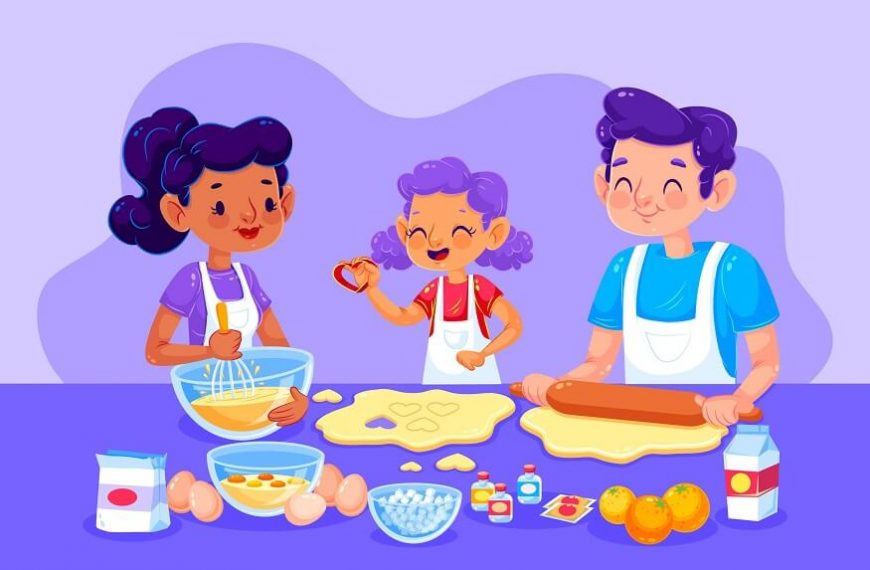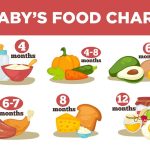Cooking Activities for Kids: Teaching Valuable Life Skills
As young parents, you may search for ways to keep your kids engaged while teaching them valuable life skills. Look no further than your kitchen! Cooking activities for kids offer a fantastic opportunity to bond with your little ones, develop their motor skills, and ignite their passion for food. This blog post will explore exciting and educational cooking activities for kids. Let’s get started!
- Washing and Sorting: Cooking with preschoolers in the kitchen with a simple task can start with cleaning and sorting fruits and vegetables. Allow them to scrub the produce under your supervision and teach them about proper food hygiene. This activity promotes fine motor skills and instills a sense of responsibility in your child.
- Measuring and Pouring: Let your little ones explore the world of measurements by having them assist in pouring ingredients into bowls or cups. Cooking with preschoolers can also include different units of measurement and the importance of precision in cooking. This activity enhances their math skills, hand-eye coordination, and attention to detail.
- Mixing and Stirring: Allow your kids to mix and stir ingredients during cooking. Whether stirring batter for cookies or whisking eggs for an omelet, cooking with kids allows them to participate and feel a sense of accomplishment. It also enhances their motor skills and coordination.
- Chopping and Slicing: As your children grow older and gain more experience in the kitchen, cooking with kids can involve basic knife skills. Start with child-safe knives and softer ingredients like bananas or cucumbers. Under your guidance, they can learn how to chop, slice, and dice ingredients, developing their fine motor skills and kitchen safety awareness.
- Decorating and Plating: Get your kids involved in the creative aspect of cooking by allowing them to decorate and plate the dishes. Whether arranging toppings on a pizza or garnishing a salad, this activity encourages artistic expression and attention to detail. Plus, it makes the mealtime experience more enjoyable for everyone.
- Recipe Research: Encourage the kids in the kitchen to explore new recipes and ingredients. Let them browse kid-friendly cookbooks or reliable cooking websites to find exciting dishes they want to try. This activity sparks their curiosity, improves their reading skills, and expands their culinary knowledge.
- Garden-to-Table: If you have a backyard garden or access to a local farmers’ market, teach kids helping in the kitchen harvesting fresh ingredients. Let them pick herbs, pluck ripe fruits, or gather vegetables. They will learn about the importance of sustainable eating, appreciate the efforts that go into food production, and feel proud of their contribution to the meal.
- Menu Planning: Engage your kids in meal planning by asking for their input. Please encourage them to suggest meals and discuss the nutritional value of different ingredients. This activity promotes decision-making skills, exposes them to various foods, and encourages healthy eating habits.
- Setting the Table: Teach your children proper table etiquette by involving them in setting the table. Guide them in arranging plates, utensils, and napkins, teaching them the appropriate placement. This activity instills a sense of responsibility, enhances organizational skills, and creates a welcoming environment for family meals.
- Cleanup Crew: Teach kids helping in the kitchen the importance of cleaning up after cooking. Assign them age-appropriate tasks such as wiping down surfaces, washing dishes, or sweeping the floor. Involving them in this routine instills a sense of responsibility, teamwork, and cleanliness.
The kitchen is not just a place to prepare meals; it’s also a valuable classroom for teaching necessary life skills to the kids helping in the kitchen. Here are some essential life skills that children can learn while participating in kitchen activities:
- Following Instructions: Cooking requires following step-by-step instructions, measuring ingredients accurately, and following recipes. By following directions in the kitchen, kids learn the importance of listening carefully, following procedures and paying attention to detail.
- Math Skills: Cooking involves measuring ingredients, understanding fractions, and learning basic math concepts like addition, subtraction, and multiplication. Children can improve their math skills by measuring ingredients, adjusting recipes, and understanding the importance of accurate measurements.
- Time Management: Cooking often requires coordinating multiple tasks and managing time efficiently. Kids can learn to plan and organize their cooking activities, understanding the importance of timing and sequencing to ensure everything is ready simultaneously.
- Problem-Solving: In the kitchen, unexpected challenges can arise, such as missing ingredients or a recipe not turning out as expected. Children can develop problem-solving skills by finding creative solutions to these challenges, adapting recipes, and substituting when necessary.
- Food Safety and Hygiene: Proper food handling and safety are crucial in the kitchen. Kids can learn about handwashing, cross-contamination, safe cooking temperatures, and storing food properly. Teaching them these practices from an early age helps them develop responsible habits that will benefit them throughout their lives.
- Communication and Collaboration: Cooking often involves working as a team, whether following a recipe together or dividing tasks among family members. Kids can learn to communicate effectively, express their ideas, and collaborate with others to achieve a common goal.
- Independence and Self-Reliance: As children gain confidence in the kitchen, they can gradually take on more responsibilities, such as independently preparing simple meals or snacks. Encouraging them to work independently fosters independence, self-reliance, and a sense of accomplishment.
- Creativity and Innovation: Cooking allows children to explore their creativity and experiment with different flavors, textures, and combinations. They can learn to think outside the box, adapt recipes to suit kids in the kitchen, and develop unique culinary creations.
- Patience and Persistence: Cooking requires patience; some recipes may take time or require multiple steps. Kids learn the value of perseverance and patience as they wait for the dough to rise, sauces to simmer, or baked goods to cool before enjoying the final results.
- Appreciation for Nutrition and Healthy Eating: Involving kids in meal preparation helps them develop an understanding of where food comes from and the importance of a balanced diet. They can learn about different food groups and the nutritional value of ingredients and make healthier choices when selecting and preparing meals.
Conclusion:
The kitchen is a fantastic place for children to learn and grow. By involving them in various activities, you teach them essential life skills, create lasting memories, and foster a love for cooking and healthy eating. By engaging kids in the kitchen and teaching them these life skills, parents promote their children’s independence and creativity and lay the foundation for a lifetime of healthy eating habits, effective communication, and problem-solving abilities. So, encourage your kids to roll up their sleeves, put on an apron, and embark on a culinary adventure that will benefit them in numerous aspects of life.
At Eurokids, we motivate kids to help in the kitchen. We aim to make them independent and explore the environment around them. Click here to learn more or to visit a Eurokids center for preschool admission for your child.
















